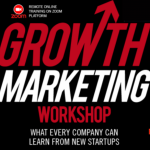Article by Dr. Feranita & Nilantha Perera
Entrepreneurs often begin their business ventures with wide eyes, stellar ideas and immense passion to make their product valuable to the community. However, these aspirations are soon diminished when reality sinks and their innovative solutions are not positively received in the market, or worse, forced to face bankruptcy before seeing any progress – particularly on the first try.
Most of us have heard that 90% of the startups fail, whereas the startup failure rate in Malaysia can even go as high as 95%. Reasons for what is considered a ‘failure’ are aplenty from: managerial issues, operational issues, running out of funds, and wrong target market. Little do aspiring entrepreneurs know that bad marketing is also among the reasons why startups fail. While it may take several tries, how can budding entrepreneurs apply marketing strategies and practices to ensure their business takes flight?
Marketing discusses many other concepts like branding, differentiation, unique selling proposition (USP), and marketing orientation to name a few. The pandemic has also pushed the trends of digital marketing further in Malaysia, and we can see this when browsing our social media full of advertisements, drawing our desire and the constant push notifications from various apps.- Nevertheless, online or offline, the fundamental idea of marketing is delivering maximum value to satisfy a company’s intended audience.
With the expanding topics around the marketing sphere, there are debates on whether it is a form of an art or science. Despite arguments that marketing has both scientific and artistic attributes, we take the stance that marketing has to be a “practice” in contributing to the business world. The benefits of practising marketing can be seen in businesses acquiring new customers or inscreasing market share. However, like many other subjects, the existing marketing concepts have been developed by observing larger-scale business organisations’ practices. This is because practices by large scale companies are more observable than small and medium enterprises (SMEs).
Much like fitting a “square peg in a round hole”, marketing concepts are commonly based on observing established and often larger corporations, which do not actually match with the SME business model and startups, due to the size difference as well as being in its infancy.
Failure to realise this gap may have adverse effects on entrepreneurial startups. In fact, many entrepreneurs apply marketing practices without adjusting accordingly to their business needs – which can lead to failure. Hence, it is crucial for entrepreneurs to keep in mind that their business is in its growing phase and services they provide to the market are vastly different to well-established brands.
At the entrepreneurial level, marketing is customer functional-value creation and customer functional-value delivery. The entire business value chain needs to support this process which will lead to higher functional-value delivery. But the existing marketing practices mainly revolve around emotional-value delivery to their customers. In other words, general marketing concepts are primarily based on emotional-value delivery.
Take clothes for example, the functional need would be warmth – while emotional need would be being recognised as being fashionable or expressing the wearer’s personality. Another great example comes to a person’s decision in purchasing a car, where the functional need would be commuting and the emotional need is the desire to be seen as belonging to a higher social class driving a luxurious vehicle.
Unlike large corporations focusing more on emotional needs fulfilment, entrepreneurs need to focus exclusively on functional needs fulfilment. For example, the general practice of using mass media in deploying models, celebrities, and key opinion leaders are meant to draw out the customers’ inner emotional needs and desires. This approach is highly popular, often seen with sponsored content on social media. Meanwhile, entrepreneurs at the emerging stage of entering a market with less established brand names are still trying to constantly improve their products to fulfill customer functional-value delivery.
Another prime example is a restaurant’s absolute customer functional requirement which can be listed as follows: (1) Hunger reduction; (2) Quality food; (3) Healthy food; and (4) Socialising. For an entrepreneur recently entering the food & beverage industry, they would not be able to invoke any emotional needs like the recognition of eating in a posh restaurant, before the functional requirements are met.
If we were to trace the initial stage of the successful businesses catering to customer emotional needs today, they were focused exclusively on satisfying customer functional-value when building their businesses.
This hidden but effective practice is yet to be uncovered by many aspiring entrepreneurs. They need to be active in building relevant customer functional value for their customer before engaging the customer with emotional value. This entrepreneurial marketing application will gradually build relevant USPs and customer mindshare will grow, and result in customer brand equity (CBE).
Understanding this marketing practice for entrepreneurial startups will ensure entrepreneurs in finding a round peg to fit into a round hole.

MARKETING Magazine is not responsible for the content of external sites.









